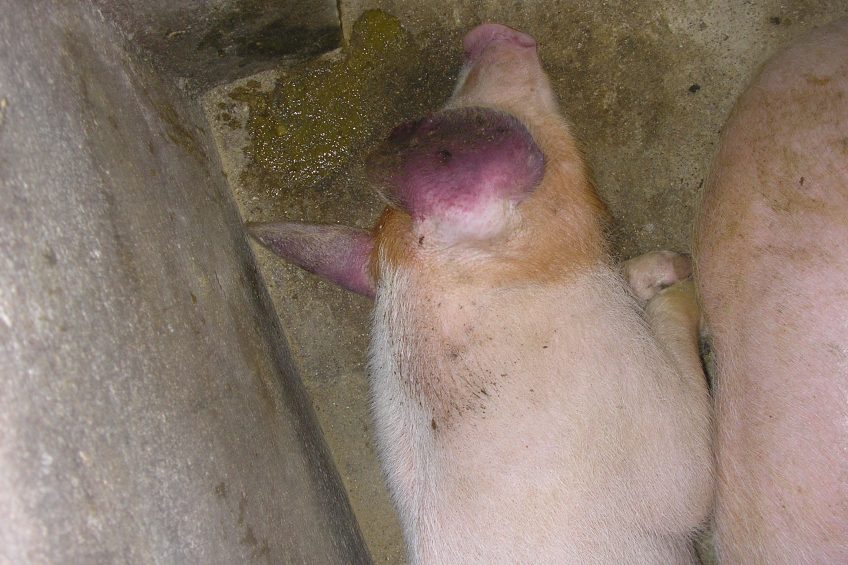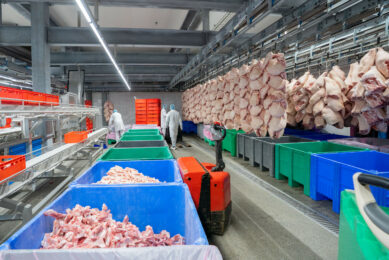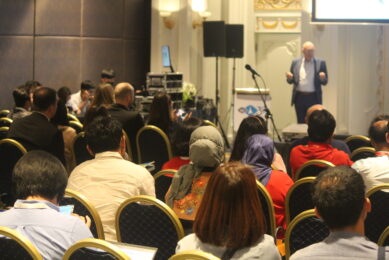PRRS situation in China is very complex

The complexity of the situation around Porcine Reproductive and Respiratory Syndrome (PRRS) in China, became very clear at the recently held International Pig Veterinary Society (IPVS) Congress, held in Chongqing, China. The congress’ president, in Prof Yang Hanchun, gave a clear outline of the situation and explained what is happening.
Globally, PRRS has been around for over 20 years now and the virus has proven to be complex, as strains continue to vary and evolve, meaning that control of the virus through vaccination remains difficult. Especially in China, where biosecurity on farms can be quite low and where swine farm density on the other hand is high, the disease can spread quickly.
HP-PRRS devastated the industry
One of the most remarkable elements of Prof Yang’s keynote speech was that he explained how local Chinese attempts to control highly pathogenic PRRS (HP-PRRS) had led to new virus strains. The HP-PRRS was discovered in 2006 and ‘devastated the pig industry’, leading to ‘inestimable economic losses’, Prof Yang said, reminding his audience.
Read more about pig health in the Pig Progress Health Tool
Various (locally developed) modified live vaccines to target the HP-PRRS appeared in the Chinese market as from 2011, he described. He continued to say, “However, reproductive failures in sows, such as sporadic abortion, stillbirth and weak piglets, and respiratory diseases in growing pigs are very common on pig farms practising vaccination.”
Massive, multiple vaccinations against PRRS
He noticed that there had been ‘massive, multiple vaccinations and unlimited use of the modified live vaccines’ – and that unlimited use of these locally produced vaccines sometimes made things worse instead of better. He said, “Indeed, several emerged or isolated strains of PRRSv with enhanced virulence have been recognised to be likely revertants of one HP-PRRSv modified live vaccine.”
He continued to say, “In recent years, almost real HP-PRRSv could not be monitored from clinical samples of pigs with PRRS manifestations; on the contrary, various PRRSv-like viruses and/or viruses evolved from HP-PRRSv modified live vaccines were detected or isolated easily, proposing that HP-PRRSv has been extinct almost in China at present.”
An additional problem related to PRRS
Prof Yang also touched on various other problems related to PRRS in China. Most notably, he stated that since 2014, a new strain has surfaced, called ‘NADC30-like’ virus, suggesting that the strain may have entered from North America.
All of this has also come together, Prof Yang said: “Our unpublished data show that, of the 4 isolates from a single pig farm practicing HP-PRRSv modified live vaccines, one strain is a recombinant virus generated from the recombination event between 2 HP-PRRSv modified live vaccine evolved viruses, and another one is a recombinant virus between 2 HP-PRRSv modified live vaccine-evolved viruses from one modified live vaccine, and another 2 strains are recombinant viruses from NADC30-like and a HP-PRRSv modified live vaccine-evolved virus.”

He concluded, “Obviously, HP-PRRSv modified live vaccines also contribute to the recombination of PRRSv besides the entry of NADC30-like.”
IPVS and PRRS Symposium together
Prof Yang closed off giving various recommendations how to structurally improve the PRRS situation. The 2018 IPVS Congress was held 11-14 June in Chongqing, China. It was held in co-location with the 2018 International PRRS Symposium. This led to plenty of attention for the PRRS problem in China.











